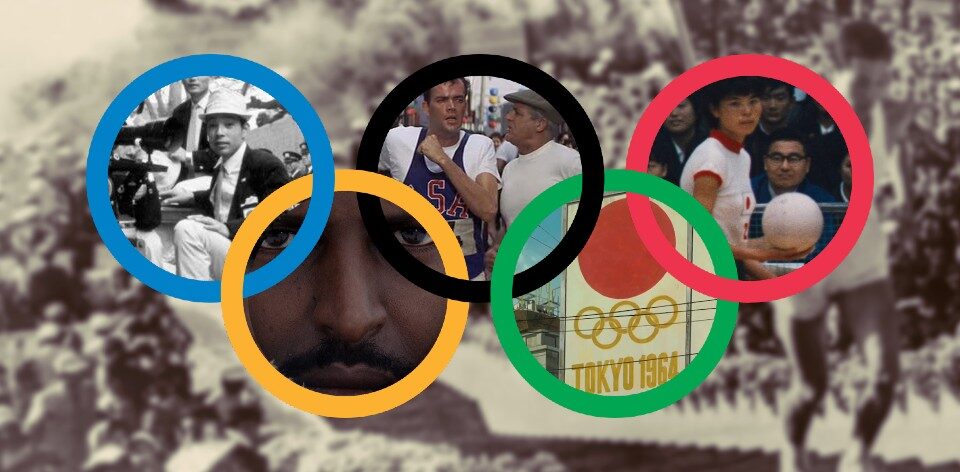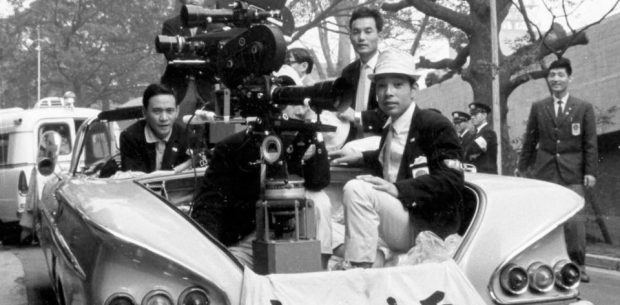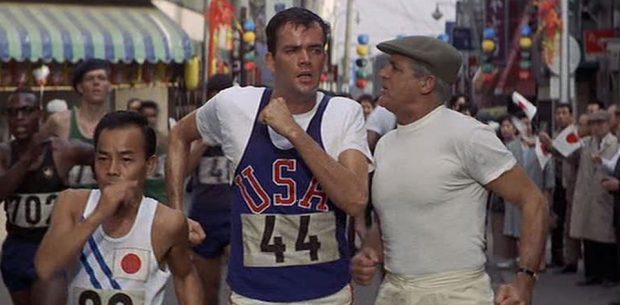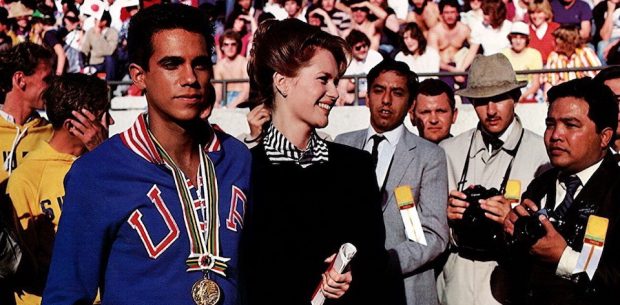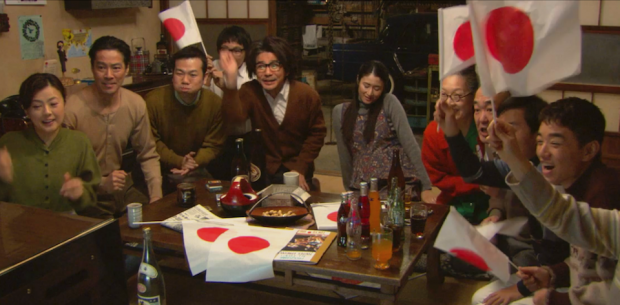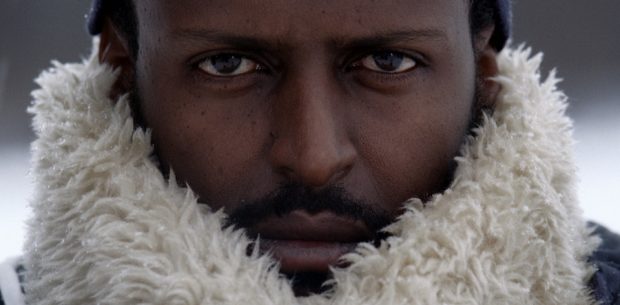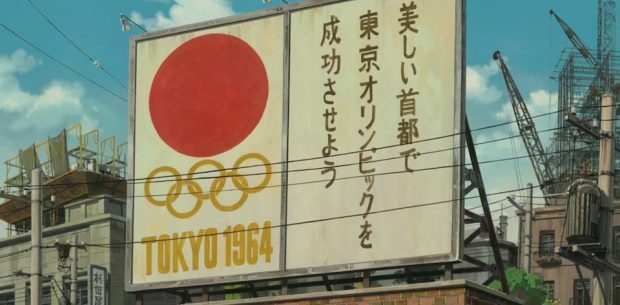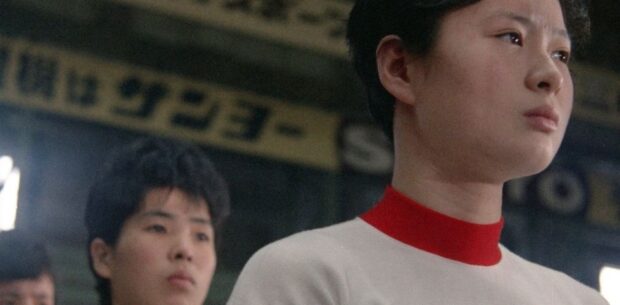Tokyo is no stranger to delayed Olympics. The 1940 Games were postponed due to that small matter of a world war, while the summer 2020 Games have been delayed due to a once-in-a-century pandemic.
Yet if you’ve been to Tokyo over the last few years, or have lived there for any amount of time, you’ll know that it’s been all systems go in preparation for this event. It’s a global lightning rod that somehow makes you pay attention to sports whether you’re into the sportsing or not. Which is a bit like a sports film: one tends to find themselves cheering regardless of whether we’ve worked out the rules or the stakes.
The Olympic Games have spawned countless films over the years, from official records to less official (but no less revered) outings like Cool Runnings. Following in the footsteps of Kon Ichikawa, the award-winning filmmaker Naomi Kawase is still to direct the official ‘2020’ film.
Yet Ichikawa isn’t the only person to document the 1964 games on film. Indeed, it continues to be a cultural touchstone almost 60 years later. Who knows what films will be made about the Tokyo Summer Games in decades to come?
Tokyo Olympiad (1965)
Like Leni Riefenstahl’s Olympia, which documented the 1936 Summer Olympics in Berlin, Kon Ichikawa’s Tokyo Olympiad chronicles the 1964 Summer Olympics with an artistic flare. Unlike Riefenstahl, Ichikawa was not later arrested as a Nazi sympathiser. Unusual for an Olympic film in that it was financially solely by Japan (rather than the International Olympic Committee), it still came with its own controversies. While it is now considered to be a canonical documentary, Ichikawa’s flourishes were at odds with the governments desire for a straightforward narrative, and he was forced to release a severely cut 93 minute edit to cinemas. It also marked the end of his so-called ‘Natto Wada’ period, in which he regularly collaborated with his then-wife. You can now view the whole 165-minute unedited masterpiece on the official Olympics site.
Walk Don’t Run (1966)
The film that ended Cary Grant’s career! Well, sort of. Significant for being Grant’s last screen credit before retiring to spend time with his young daughter, it’s also notable for being set during the then-recent Tokyo Games. A remake of the George Stevens wartime film The More the Merrier (1943), it sees Grant, Samantha Eggar and Jim Hutton briefly living together in Tokyo due to a housing shortage caused by the Games. Played more for rom com laughs than anything, the most famous scene is probably seeing the 62-year-old Grant strip down to his boxer shorts and t-shirt to ‘compete’ alongside Hutton and solve his romantic woes.
Running Brave (1983)
A biopic about Billy Mills (also known as Tamakoce Te’Hila), a member or the Oglala Lakota tribe located in South Dakota who went on to be the only American (so far) to win Olympic 10,000 meter run at the ’64 Games. Despite the title, and non-Native actor Robby Benson in the lead, it’s a fairly balanced portrayal of the athlete and his struggles.
Always: Sunset on Third Street ’64 (2007)
The third film in the Sunset on Third Street series, based on the manga series by Ryōhei Saigan, continues the beloved family saga. As you can probably guess from the title, this one is based during the lead-up to the historic Tokyo Games in 1964. For a series that previously had a cameo from Japanese icon Godzilla, and set under the shadow of the Tokyo Tower, it has always been infused with optimism and family-friendly drama. Director Takashi Yamazaki takes that moment in time as a symbol of the post-War optimism — filled with burgeoning technology and rapid rebuilding — and casts a rose-coloured and nostalgic eye over a favourite era for Boomers everywhere.
The Athlete (2009)
Another non-Japanese film, this Ethiopian entry for the Best Foreign Language Film at the 83rd Academy Awards tells the story of marathon runner from Ethiopia, Abebe Bikila. The runner competed as an unknown at the 1960 Games in Rome, stunning the world by competing barefoot — and then doing it all again at the 1964 Games in Tokyo. While his later life was beset by tragedy, this film — along with appearances in Tokyo Olympiad and the 1972 documentary The Ethiopians — ensures his legacy in popular culture.
From Up on Poppy Hill (2011)
Not the most obvious of Olympic films, but it’s almost impossible to do a broad list of Japanese films without at least on Studio Ghibli. Set in Yokohama in 1963, the year before the Olympics came to Tokyo, the story is principally concerned with two teens who are determined to not let the powers that be tear down the old for the sake of the new. Filled with the nostalgic leanings that typify a Ghibli joint, it may not be strictly an Olympic film but it’s filled with all the signs of the coming Games, and takes us back to a time when Japan was going through great economic and social change. Read the full review.
The Witches of the Orient (2021)
A remarkable story about an equally remarkable team of Japanese volleyball players and their unbeaten lead-up to their victory at the 1964 Tokyo Olympics. Formed in the 1950s, the factory team took to the world stage with victories at the FIVB Volleyball Women’s World Championship. They became known for their trademark kaiten reshību, a method of rotating on the court and receiving the ball while rolling. The team’s 258 consecutive victories ended in 1966, but it remains a standing record. Read the full review.

